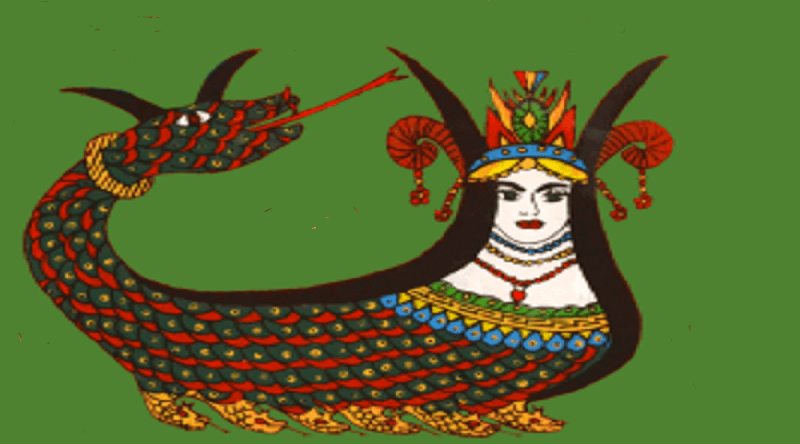Shahmaran Legendary
Shahmaran Legendary
Shahmaran is a legendary creature from Middle Eastern and Anatolian folklore, particularly popular in Kurdish, Persian, and Turkish traditions. The name “Shahmaran” comes from Shah (meaning “king” in Persian) and Maran (meaning “snakes”), signifying her role as the queen of serpents. She is usually depicted as a beautiful woman from the waist up and a serpent from the waist down.
The Legend of Shahmaran
A long time ago, in the city of Tarsus (modern-day Turkey), there was a young man named Cemşab (or Jamasp). One day, he and his friends were searching for water when they discovered a hidden cave filled with an underground pool. While exploring, Cemşab accidentally fell into the water and found himself in a hidden paradise, the realm of Shahmaran.
Shahmaran, the wise and kind-hearted queen of the serpents, welcomed Cemşab and took care of him. Over time, they developed a deep bond, and Shahmaran taught him the secrets of wisdom, medicine, and healing herbs. However, despite the comfort of the serpent kingdom, Cemşab longed to return to the human world. He promised never to reveal Shahmaran’s existence and was allowed to leave.
Years later, the king of Tarsus fell gravely ill, and his viziers declared that the cure could only be found in the flesh of Shahmaran. A desperate search began, and Cemşab, under pressure, was forced to reveal her location. Shahmaran was captured and brought before the king. Before her execution, she instructed the people:
If they boiled and drank her tail, they would die.
If they boiled and drank her head, they would be cured.
The viziers, greedy for power, drank from her tail and perished. Cemşab, however, followed her instructions and drank from her head, gaining great wisdom and becoming a legendary healer. In some versions of the story, he even became the new vizier or king.
Moral of the Tale
The Shahmaran legend symbolizes wisdom, betrayal, and sacrifice. She represents knowledge and kindness, but also the tragic fate of those who trust humans too much. The tale also reflects the importance of honoring promises and the consequences of greed.
The story of Shahmaran is still deeply rooted in Turkish and Kurdish folklore, with her image often used in talismans for wisdom and protection.




